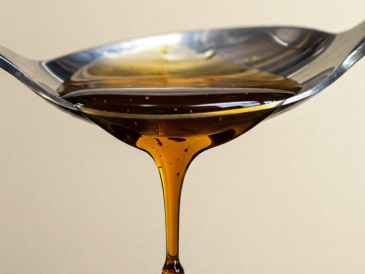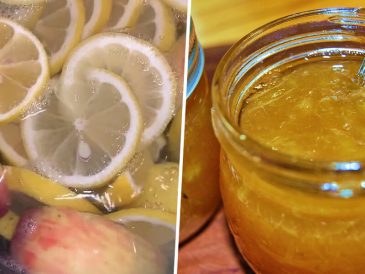Japanese Longevity Secrets: What the Oldest Doctors in Japan Eat Every Day to Stay Young and Strong
Japan is home to some of the world’s healthiest, longest-living people—especially in regions like Okinawa, often called the “Land of Immortals.” Their exceptional longevity is not a miracle or a mystery. It’s the result of generations of habits, balance, and a deep respect for food as medicine.
While no single food can guarantee a longer life, the daily routines of Japan’s oldest doctors reveal patterns that support strong immunity, stable energy, better digestion, and long-term wellness. Here are the foods and habits they rely on day after day.
1. A Breakfast Built on Balance
Traditional Japanese breakfasts are light, nourishing, and designed to activate the body gently after sleep. Many elderly doctors in Japan follow a routine like this:
• Miso Soup
Rich in probiotics from fermented soybeans, miso supports gut health and boosts immunity.
• A Bowl of Rice or Whole Grains
Steady energy without heavy fats or sugars. Some replace rice with brown rice, barley, or millet for extra fiber.
• Grilled Fish (especially mackerel or salmon)
Loaded with omega-3 fatty acids to support heart and brain health.
• Pickled Vegetables (Tsukemono)
These fermented veggies improve digestion, reduce inflammation, and nourish the gut microbiome.
2. Daily Fermented Foods for Long Life
Japanese longevity is strongly linked to their history of fermentation. Doctors often include:
• Natto
A sticky fermented soybean dish rich in:
- Vitamin K2 (supports bone health)
- Probiotics
- Enzymes that improve circulation
Natto is widely praised in Japan for supporting heart health.
• Kombucha or Fermented Teas
These assist with detoxification and gut function.
• Miso & Soy Sauce (Naturally Brewed)
Used daily in small amounts for flavor and digestive benefits.
3. A Rainbow of Vegetables at Every Meal
Instead of large portions of meat, long-living Japanese doctors load their plates with:
• Sea Vegetables (Wakame, Nori, Kombu)
Rich in minerals, iodine, and antioxidants.
• Leafy Greens like Komatsuna & Spinach
High in calcium and vitamins, excellent for bones.
• Root Vegetables (Daikon, Carrot, Sweet Potato)
Slow-release energy and high fiber.
• Seasonal Vegetables
The Japanese philosophy: Eat what the earth grows now.
This ensures maximum nutrients and flavor.
4. Healthy Protein in Moderation
Many Japanese doctors prefer lighter proteins that nourish rather than burden the body. These include:
- Fish (3–4 times per week)
- Tofu and soy products
- Eggs
- Small amounts of chicken
- Occasional lean beef or pork
They follow the rule: “Hara hachi bu”—eat until you are 80% full.
5. Green Tea: The Daily Elixir of Health
Most Japanese elderly—including doctors—drink 3 to 5 cups of green tea every day.
Benefits include:
- Antioxidants (especially EGCG)
- Better metabolism
- Mental clarity
- Reduced inflammation
Matcha, the powdered form of green tea, is especially rich in antioxidants.
6. Herbs and Traditional Remedies
Japanese doctors often consume natural boosters that have been used for centuries:
• Ginger & Turmeric
Reduce inflammation and support digestion.
• Shiso Leaves
Rich in omega-3, used in soups, salads, and teas.
• Mushrooms (Shiitake, Maitake, Enoki)
Known for immune-supporting compounds.
7. Simple Cooking That Protects Nutrients
Japanese cuisine avoids heavy frying and focuses on:
- Steaming
- Simmering
- Light grilling
- Raw preparations
This keeps food nutritious, low in calories, and easy to digest.
8. Small Portions, Frequent Variety
One meal typically includes 5 to 7 small dishes, encouraging variety rather than overeating. This ensures a high intake of:
- Minerals
- Fiber
- Antioxidants
- Plant-based compounds
All linked to longevity.
9. Movement and Mindset: The Other Half of Longevity
Food is important, but the oldest Japanese doctors share lifestyle habits too:
- Daily walking
- Gentle stretching
- Practicing gratitude
- Strong social connections
- Stress reduction through tea, nature, or meditation
Their philosophy is simple:
Live calmly, eat mindfully, and move every day.
Final Thoughts
Japanese longevity isn’t due to one magic ingredient—it’s a lifestyle built on simple, nourishing foods and steady habits. The oldest doctors in Japan don’t focus on dieting or restrictions. Instead, they prioritize:
- Balance
- Quality ingredients
- Fermented foods
- Daily movement
- Eating until lightly satisfied





